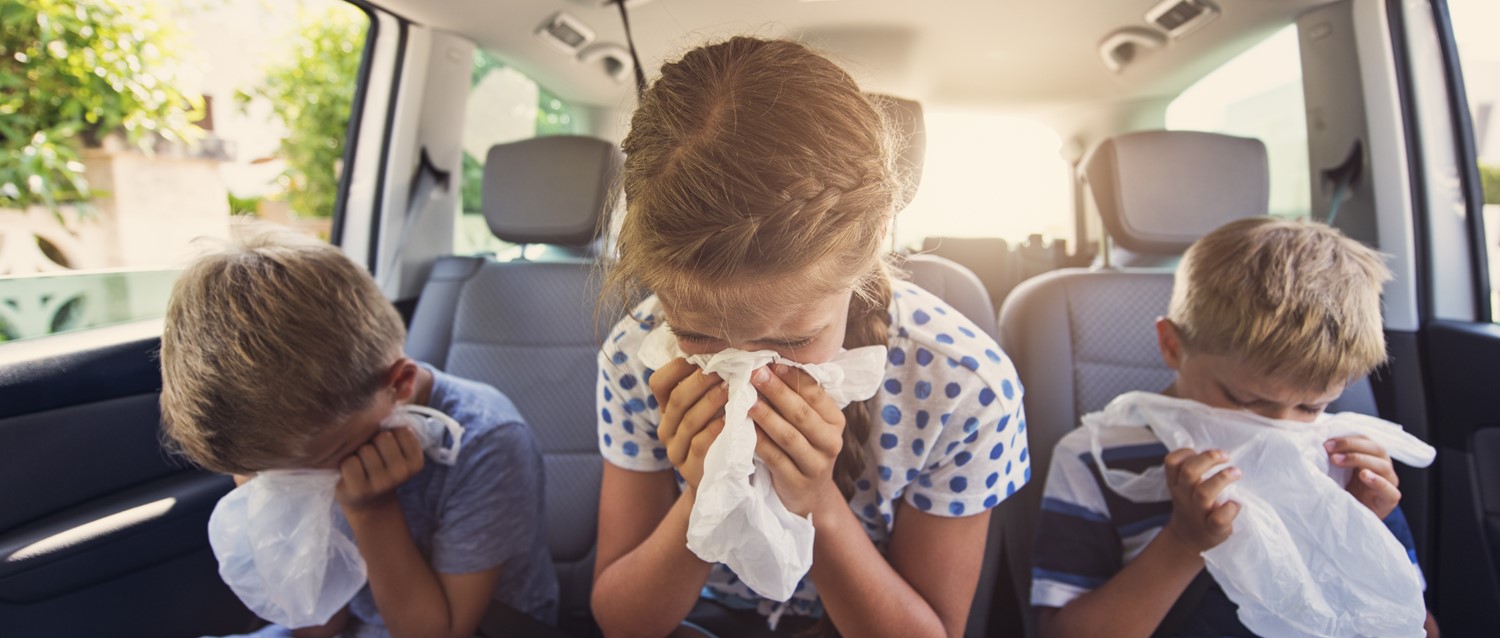
Should you worry about side effects with malaria tablets?
Peer reviewed by Dr Sarah Jarvis MBE, FRCGPLast updated by Glynis KozmaLast updated 9 May 2019
Meets Patient’s editorial guidelines
- DownloadDownload
- Share
- Language
- Discussion
- Audio Version
Malaria is an almost entirely preventable disease, but in 2017 there were 1,700 cases in the UK and six deaths from it. Most people who became infected had either not taken antimalarial tablets or not taken them as directed. One of the reasons for avoiding malaria medication can be the association with side effects. But how likely are they?
In this article:
Video picks
Protecting yourself against malaria is a twofold step. "The first," says Bernie Carroll, clinical nurse specialist from the Department for Tropical Medicine at University College London Hospital, "is to check whether the region you are travelling to is on the list for antimalarials. There was a review two years ago and some countries were taken off the list. Bite prevention is now the first line of defence in some regions - wearing appropriate clothing, using nets and repellents."
The highest regions for risk are West Africa, South America and parts of Asia.
"Sometimes people who are returning to their home country think they are not at risk and don't take antimalarial drugs. A list of drugs that are appropriate for regions can be found on the Travel advice by country page," says Carroll.
Your pharmacist or travel clinic should be able to advise on the best malaria tablets for you, if you're travelling somewhere they're needed. Some drugs may not be appropriate depending on your medical history or, for example, if you are pregnant or breastfeeding. Other factors to consider are the cost of the drugs and how soon you are going on holiday. Some drugs need to be taken up to three weeks before you travel.
Reading the list of side effects of any medication is always daunting - and can be enough to put people off taking them. But Dr Sarah Jarvis, Patient's clinical director, advises it's essential to put these risks into perspective.
"Firstly, it's important to remember that companies have to list all the possible side effects of their drugs, no matter how rare. The vast majority of patients will never have the uncommon or rare side effects listed," she points out. "Even the 'very common' side effects might not be experienced by up to 90% of people taking the drug. And secondly, you need to weigh up the risks of taking the drug with the risks of getting malaria if you don't take it. Malaria is a serious condition and is far more likely to be fatal than the medication is."
Continue reading below
How likely are side effects?
Side effects are very common with all of the drugs. A side effect is very common if it affects up to one in ten people and common if it affects one in 100.
GP Dr Jeff Foster says: "The most common side effects with antimalarials affect more than one in 10 people. For instance, with Malarone, these very common side effects can include headache, nausea, abdominal pain and diarrhoea. Cough, fever, decreased appetite, skin rashes and mood changes or abnormal dreams affect between 1% and 10% of patients."
The common side effects are usually mild and transient, often settling within days.
Side effects which affect fewer than one in 100 people can include hair loss, palpitations and a red or sore mouth. Rarely, it may cause changes to your blood which would show up in a blood test, so you should always tell your doctor if you are using antimalarials and need a blood test.
Very rare side effects can include psychosis, seizures and panic attacks but these are so rare there are no figures for their frequency.
With a drug like doxycycline, Foster says: "This is a very commonly used drug and although there are fewer upset stomach incidents, it's also common to experience photosensitivity so care must be taken to avoid sunlight."
In most cases, upset stomachs can be managed as you would normally, by eating a plain diet until the symptoms subside. However, it is sometimes recommended that you trial your treatment before your holiday. With mefloquine (Lariam), for instance, you should start the medication three weeks before you leave, so that you have time to change to an alternative if you develop significant side effects.
Carroll also advises that drugs should have a trial period if you are worried about side effects, so you can change to another before you go away.
Allergic reactions
Back to contentsAllergic reactions can occur with any drug. The signs include:
A rash that is itchy, raised blotchy and wide spreading - it is urticarial or hives.
Difficulty in breathing.
Tongue or lip swelling.
A feeling of distress or panic.
This is a medical emergency and you need to call an ambulance or get to A&E as soon as possible.
"Take an antihistamine if possible, or steroids, but the first treatment is usually an EpiPen," states Foster.
Continue reading below
What are your choices of drugs?
Back to contentsMalarone
One of the most popular drugs for short trips is Malarone. This drug needs to be taken only for one to two days before travel, daily during the trip and for seven days on return. This makes it simple to use but it's also quite expensive for long trips. It can't be taken by pregnant women.
The most common side effects tend to be stomach upsets and headaches. These can lessen as your body gets used to the drugs.
Mefloquine
Mefloquine (also knows as Lariam) is a drug that is highly effective and can be used for long-term travel. However, it may also be associated with serious side effects. These include anxiety, vivid dreams, depression and tinnitus. It cannot be taken by anyone with epilepsy.
"This drug has been linked to ongoing mental health issues and we'd probably not prescribe it to anyone with a history of mental health problems," reveals Carroll.
The benefits of the drug are it's taken once a week rather than daily, which some people prefer, and once a week on return for four weeks.
Doxycycline
Doxycycline is an antibiotic that is an effective preventative drug for malaria. Some people may already be taking it for skin conditions such as acne. It can be started one or two days before travel, but has to be taken daily and for four weeks on return. It can't be taken by pregnant or breastfeeding women or children under 12.
Side effects can include upset stomach, thrush in women, and possible sensitivity to sunlight. It's not expensive so worth bearing in mind for longer trips.
Chloroquine
Chloroquine is not especially effective as a preventative drug for malaria and is rarely prescribed on its own. It does have a risk of side effects, some minor like stomach upsets but others that are more serious.
Keep going with your treatment
Back to contentsIt's important to continue taking your drugs after you return from your trip, even if you feel well. If you have any symptoms of malaria, which can include a high temperature, headaches, muscle aches and pains, vomiting and diarrhoea, you should see your doctor urgently or go to a specialist hospital department where they treat tropical diseases. Most cases of malaria occur where antimalarials are not used, or not used carefully.
Continue reading below
Other precautions for avoiding malaria
Back to contentsEven if you're taking antimalarials, it's very important to avoid getting bitten by mosquitoes whenever possible. While antimalarials are extremely effective if taken as prescribed, they don't offer 100% protection, so you can reduce any small residual risk still further by:
Using mosquito nets impregnated with an effective insecticide.
Wearing long trousers and long-sleeved shirts, especially in the evenings.
Using an effective insect repellent, ideally containing DEET (which works for much longer than other repellents).
Sleeping in an air-conditioned room.
Spraying your room with an insecticide before dusk.
Keeping doors and windows closed at night unless you have a fine-meshed screen.
Patient picks

Travel and vaccinations
How to manage motion sickness
Have you ever felt sick or dizzy in a moving vehicle? Perhaps you've also broken out in a cold sweat, felt weak, or developed a headache at the same time? Motion sickness may be common, but this doesn't mean you can't prevent or treat it.
by Amberley Davis

Travel and vaccinations
Health issues to be aware of when you fly
Whether your holiday plans involve a trip to an exotic city or a sunny summer on a foreign beach - you'll probably be getting there by plane. And whilst airplanes are a generally safe way of travelling - there are health issues that you should consider before you board. Here we look at what you can do to help make sure your flight is healthy and stress free.
by Michael Merschel
Continue reading below
Article history
The information on this page is peer reviewed by qualified clinicians.
9 May 2019 | Latest version

Ask, share, connect.
Browse discussions, ask questions, and share experiences across hundreds of health topics.

Feeling unwell?
Assess your symptoms online for free
Sign up to the Patient newsletter
Your weekly dose of clear, trustworthy health advice - written to help you feel informed, confident and in control.
By subscribing you accept our Privacy Policy. You can unsubscribe at any time. We never sell your data.